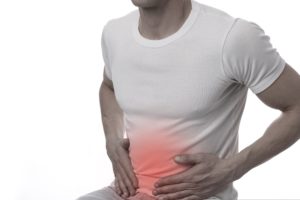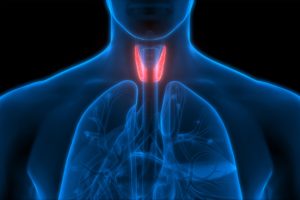
If you’re a man of a certain age, meaning in your 40s or older, and struggling with urinary dysfunction, you should know that it is another one of many unfortunate aspects of getting older.
How Do Hormones Cause Urinary Problems in Men?
Many urinary issues that men face as they get older is often due to a hormone imbalance, which usually begins to manifest around middle-age. For context, we only need to look at how testosterone, which is both a primary sex hormone and anabolic steroid, levels in men decline as they age. According to an article published by the Mayo Clinic, a nonprofit academic medical center in Rochester, MN, after age 40, most men will experience a one percent decline in testosterone production each year.
The article further revealed that most men do not realize they have low testosterone levels until they encounter symptoms, urinary dysfunction being one of them. Typically, low-T, also known as low testosterone, symptoms will start when an individual’s testosterone levels fall below 280 nanograms per deciliter (ng/dL). Around the same time when testosterone levels are taking a nosedive, most men will also see an uptick in the female hormone estrogen. And this combination of high estrogen and low testosterone levels can lead to an enlarged prostate, which paves the way for urinary dysfunction for most men.
For a free consultation, call (305) 682-1818
Common Urinary Dysfunction Problems
Generally speaking, men with testosterone levels that are too low and estrogen levels that are too high, typically 40 picograms per milliliter (pg/mL) or more, often encounter urinary dysfunction of some kind when they are in their 40s. And the likelihood of this happening increases with age. According to a study published by the Urology Care Foundation, 50 percent of men over the age of 80 have testosterone levels low enough to put them at risk of suffering from urinary dysfunction, which encompasses numerous urinary problems. Some of the more common urinary problems in men with a testosterone and estrogen hormone imbalance include the following:
Stress incontinence
This urinary problem in men is commonly associated with an enlarged prostate, which causes the involuntary leaking of urine whenever they are coughing, laughing, or sneezing. It can also occur while exercising.
Urgency incontinence
Also known as overactive bladder, urinary incontinence is characterized by an overwhelmingly strong urge to urinate and the involuntary leaking of urine. Similar to stress incontinence, urgency incontinence is often a byproduct of an enlarged prostate. However, for some men, bladder inflammation, bladder stones, bladder cancer, and even diabetes can give way to urgency incontinence as well. Some chronic health problems, including Parkinson’s disease and multiple sclerosis, can also contribute to this urinary problem in men.
What Are the Symptoms of Hormone Imbalance in Men?
Long before most men encounter urinary dysfunction, they often experience symptoms of a hormone imbalance related to low testosterone and high estrogen levels first. Starting with low testosterone, most men report experiencing the following:
- Low libido
- Hair loss
- Night sweats
- Fatigue
- Weight gain
- A decline in muscle mass
- Irritability
- Erectile dysfunction
- Feelings of depression
As far as symptoms associated with high estrogen levels, most men report developing gynecomastia. Similar to low testosterone, many men with high estrogen levels also complain of erectile dysfunction. To combat hormone imbalance symptoms brought on by low testosterone and high estrogen, many men will turn to hormone replacement therapy (HRT).
Click to contact our specialist today
Benefits of Hormone Therapy for Urinary Problems
Although associated more so with menopausal women, HRT can benefit men struggling with urinary dysfunction brought on by low-T, high estrogen levels, and an enlarged prostate. In a study published by Endocrine Abstracts, researchers found that men with benign prostatic hyperplasia (BPH), otherwise known as an enlarged prostate, saw a considerable reduction in prostate inflammation after using a testosterone 2 percent gel preparation for just six months.
Given these findings, it should come as no surprise that Androderm is one of the most recommended testosterone replacement drugs that endocrinologists prescribe to men struggling with urinary dysfunction caused by BPH. For reference, a study published in the Journal for Nurse Practitioners found Anroderm was proven effective in helping 92 percent of men achieve healthy testosterone levels. And with healthy and normal testosterone levels, many also experienced a reduction in prostate size and enjoyed considerable relief from symptoms typical of urinary dysfunction, namely stress and urgency incontinence.
To normalize high estrogen levels in men, many physicians will prescribe Clomid or a similar estrogen-blocking drug. Some may also advise men to take selective estrogen receptor modulators (SERMs). Although SERMs is a class of medication used to treat breast cancer, it doubles as an off-label drug proven to be effective in blocking estrogen production in men.
Complete a Free Consultation form now
Final Thoughts on Hormone Therapy for Urinary Problems in Men
In most cases, HRT is enough to remediate an enlarged prostate and provide most men relief from urinary dysfunction and the associated symptoms. In fact, some men have reported slight relief from symptoms of an enlarged prostate within as little as 1 to 3 days after starting an HRT regimen. However, in extreme cases, it is not uncommon for some physicians to recommend surgery. That said, to learn more about HRT for urinary dysfunction or to find out which approach might be right for you, consider scheduling a consultation with one of our compassionate and knowledgeable physicians today.
References
- https://www.endocrine-abstracts.org/ea/0063/ea0063oc14.1
- https://www.healthline.com/health/estrogen-blockers-for-men#pharmaceutical-estrogen-blockers
- https://www.medicalnewstoday.com/articles/estrogen-in-men
- Types of Male Urinary Dysfunction | NYU Langone Health
- Testosterone, aging, and the mind – Harvard Health
Call or text (305) 682-1818 or complete a Free Consultation Form







